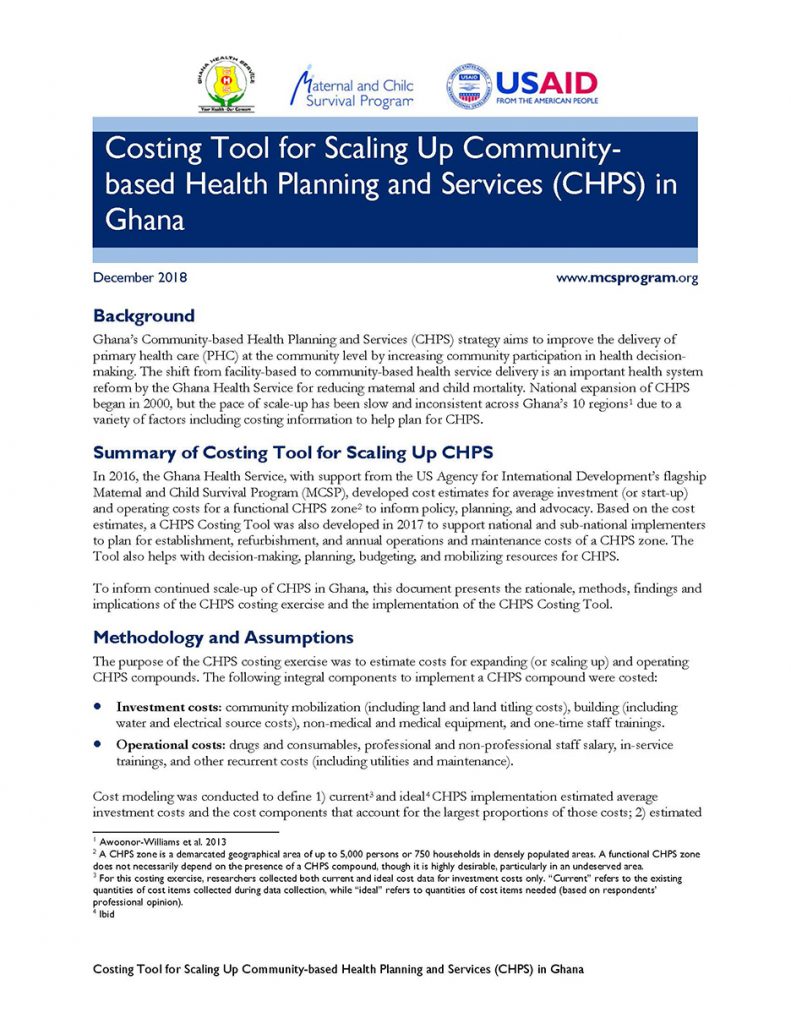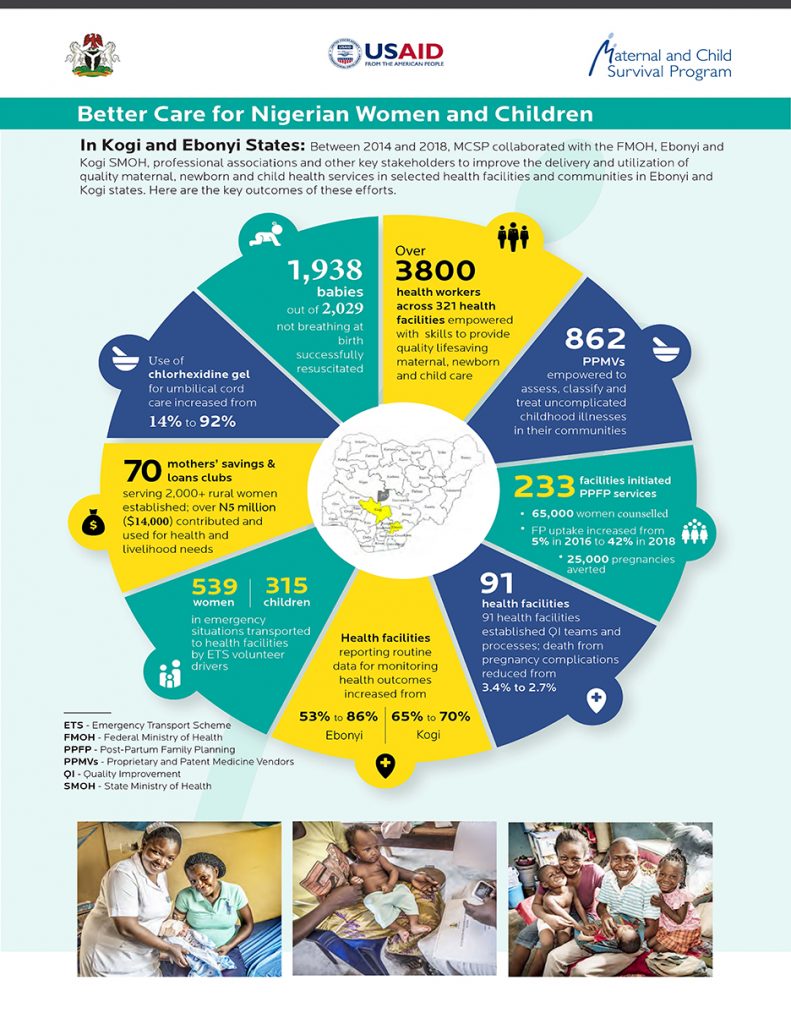
Between 2014 and 2018, MCSP collaborated with the Federal Ministry of Health (FMOH), Ebonyi and Kogi State Ministry of Health (SMOH), professional associations and other key stakeholders to improve the delivery and utilization of quality maternal, newborn and child health services in selected health facilities and communities in Ebonyi and Kogi states. […]
Read More…
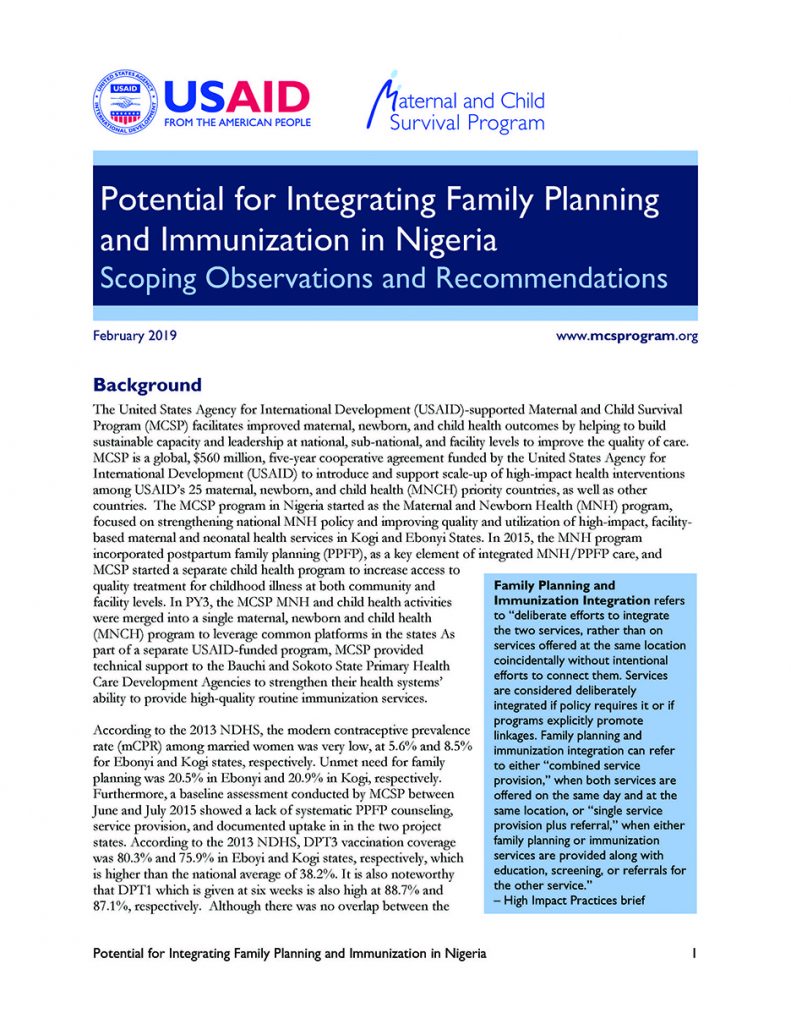
The MCSP program in Nigeria started as the Maternal and Newborn Health (MNH) program, focused on strengthening national MNH policy and improving quality and utilization of high-impact, facility-based maternal and neonatal health services in Kogi and Ebonyi States. In 2015, the MNH program incorporated postpartum family planning (PPFP), as a key element of integrated MNH/PPFP […]
Read More…
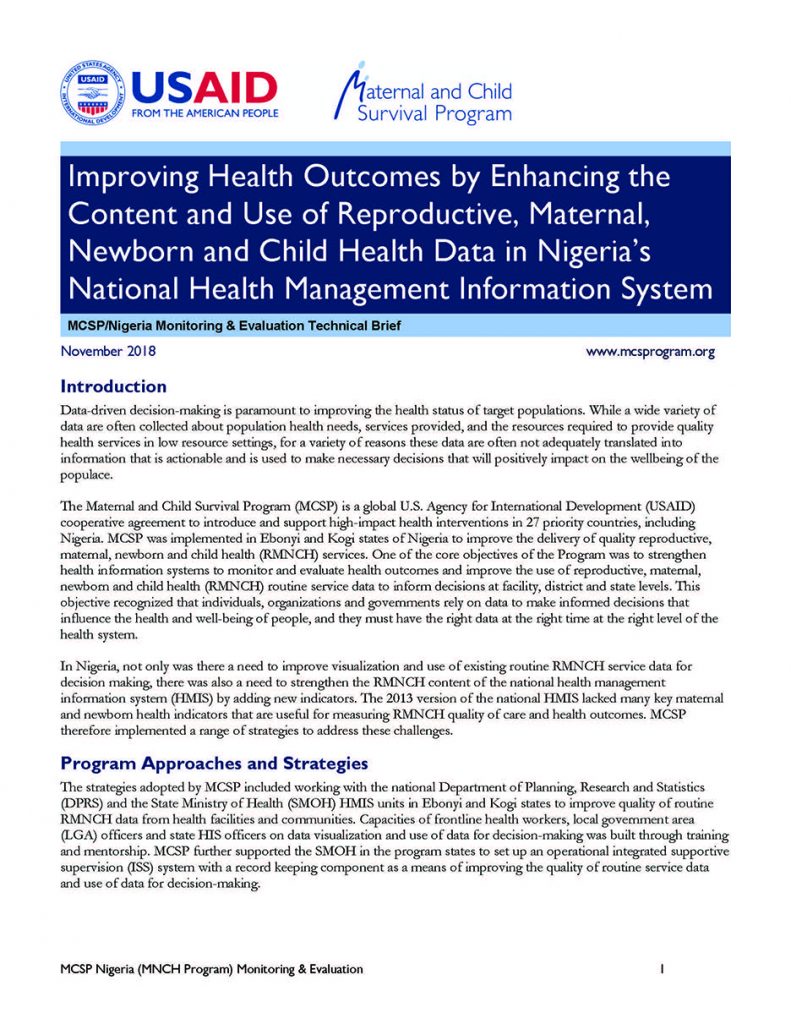
One of the core objectives of MCSP was to strengthen health information systems to monitor and evaluate health outcomes and improve the use of reproductive, maternal, newborn and child health (RMNCH) routine service data to inform decisions at facility, district and state levels. This objective recognized that individuals, organizations and governments rely on data to […]
Read More…
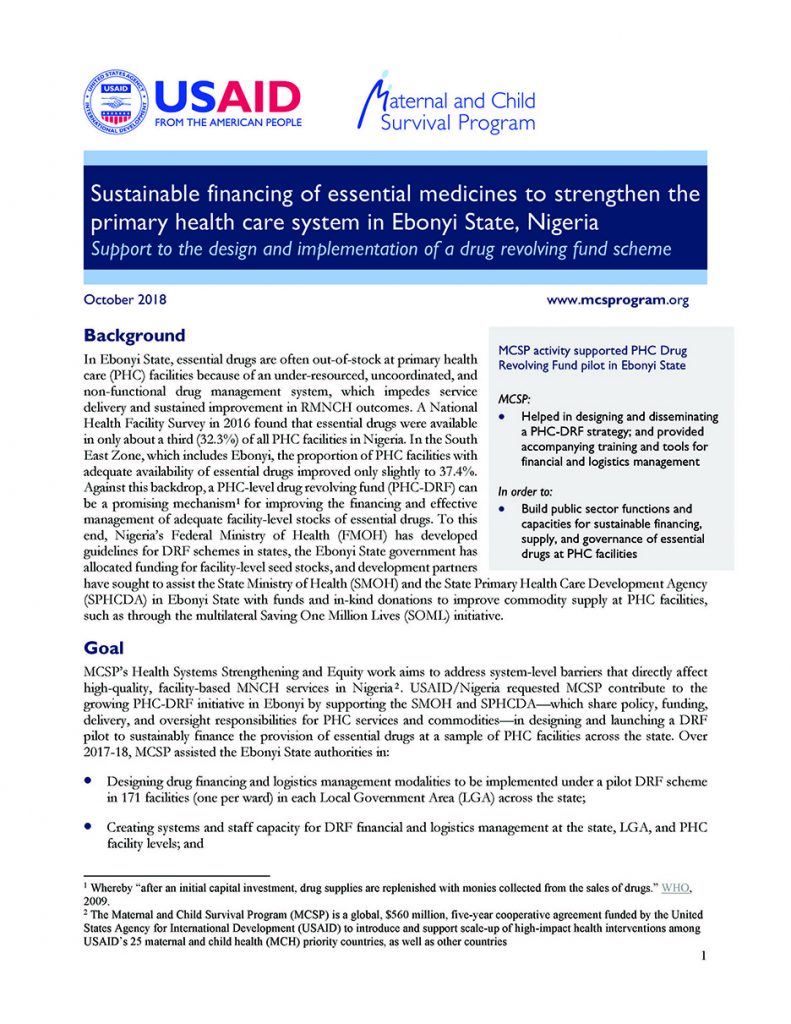
MCSP’s Health Systems Strengthening and Equity work aims to address system-level barriers that directly affect high-quality, facility-based MNCH services in Nigeria. USAID/Nigeria requested MCSP contribute to the growing primary health care- drug revolving fund (PHC-DRF) initiative in Ebonyi by supporting the State Ministry of Health (SMOH) and State Primary Health Care Development Agency (SPHCDA) —which […]
Read More…
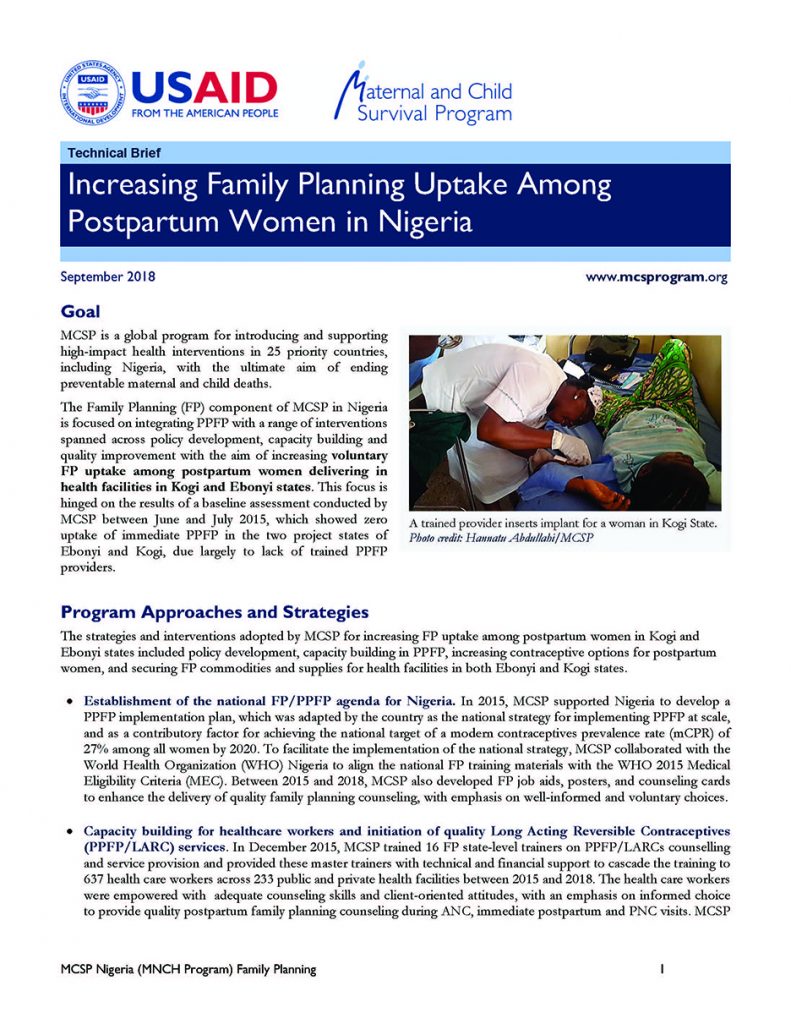
The Family Planning (FP) component of MCSP in Nigeria is focused on integrating PPFP with a range of interventions spanned across policy development, capacity building and quality improvement with the aim of increasing voluntary FP uptake among postpartum women delivering in health facilities in Kogi and Ebonyi states. […]
Read More…
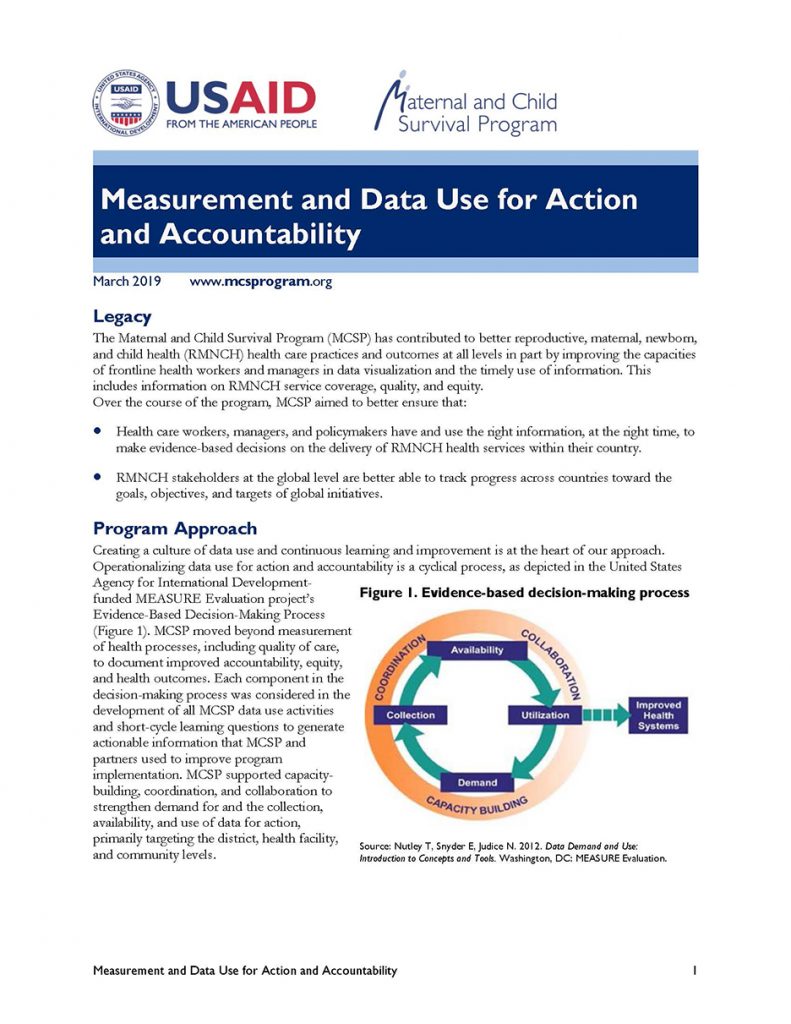
MCSP has contributed to better reproductive, maternal, newborn, and child health (RMNCH) health care practices and outcomes at all levels in part by improving the capacities of frontline health workers and managers in data visualization and the timely use of information. This includes information on RMNCH service coverage, quality, and equity. Over the course of […]
Read More…
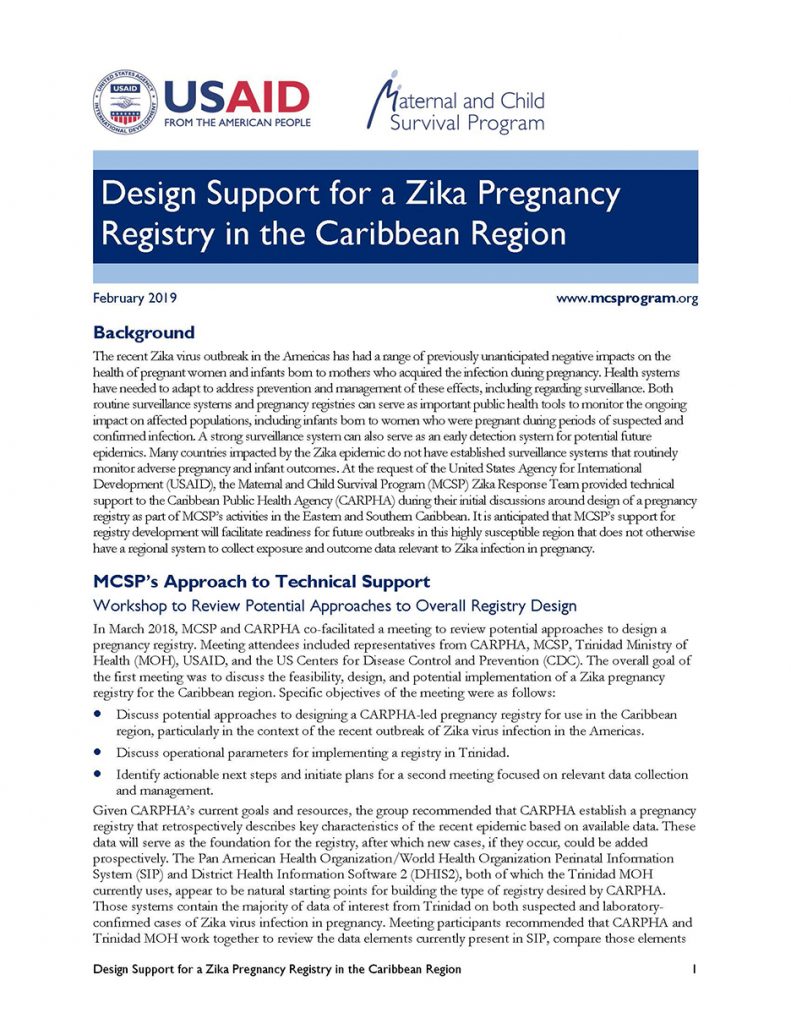
Many countries impacted by the Zika epidemic do not have established surveillance systems that routinely monitor adverse pregnancy and infant outcomes. MCSP Zika Response Team provided technical support to the Caribbean Public Health Agency around design of a pregnancy registry as part of MCSP’s activities in the Eastern and Southern Caribbean. It is anticipated that […]
Read More…
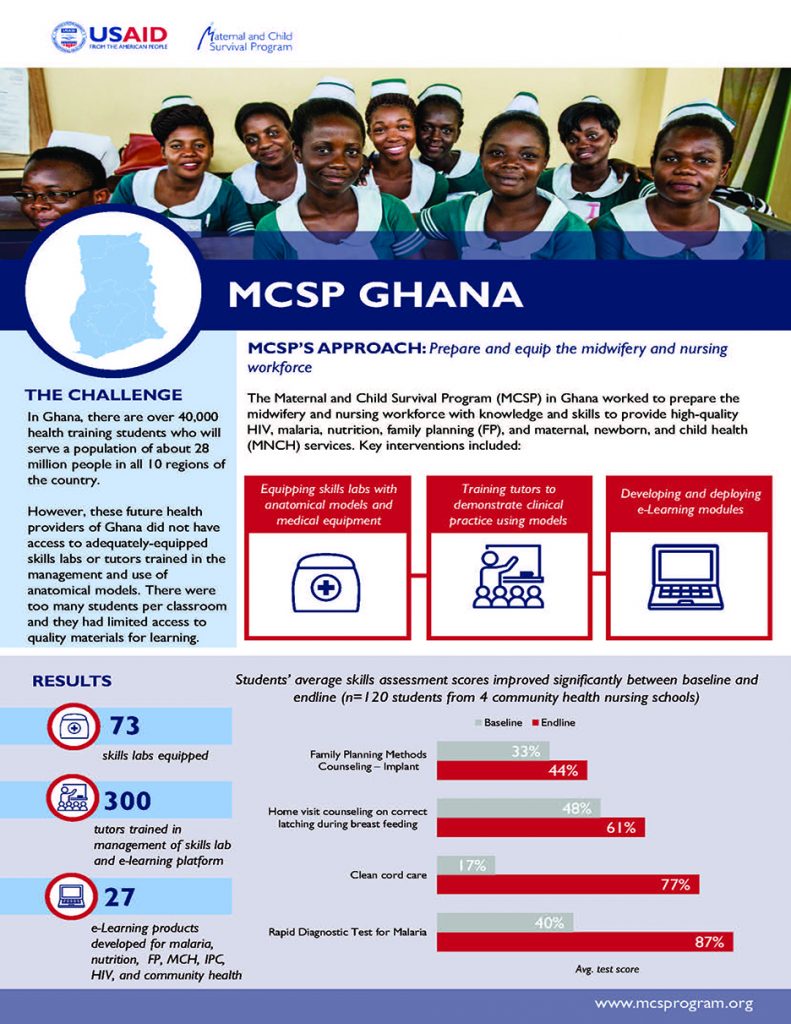
MCSP in Ghana worked to prepare the midwifery and nursing workforce with knowledge and skills to provide high-quality HIV, malaria, nutrition, family planning (FP), and maternal, newborn, and child health (MNCH) services. […]
Read More…
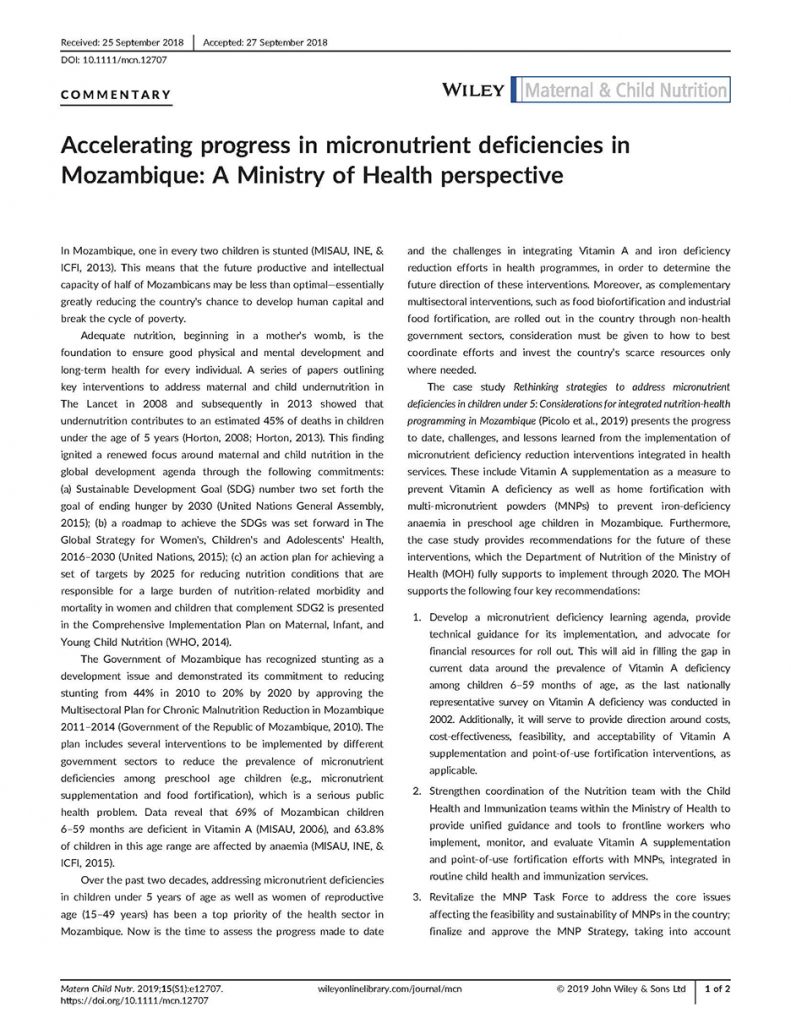
This commentary from the Mozambique Ministry of Health describes the Government of Mozambique’s commitment and support for the key recommendations outlined by Picolo et al. and calls for the engagement of key stakeholders and various government ministries to coordinate efforts to reach this goal. […]
Read More…








